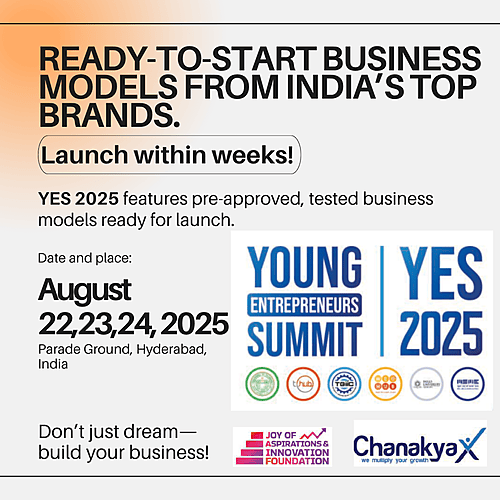Introduction: Exploring Business Models Franchise India in 2025
In the evolving landscape of business models franchise India, aspiring entrepreneurs are presented with a wealth of opportunities. As 2025 approaches, choosing the right business structure—franchise, dealership, or agency—can determine your success trajectory. Whether you're a first-time business owner or looking to diversify your investments, understanding these models will help you make a well-informed decision tailored to your goals.
Understanding the Core Business Models in India
Before diving into comparisons, let’s understand the foundational differences among the franchise, dealership, and agency models. Each has its own set of advantages, risks, and requirements, which makes selecting the right one crucial.
1. Franchise Model: Build on a Proven Brand
Franchising remains one of the most popular business models franchise India has embraced over the last two decades. It allows entrepreneurs to leverage a well-established brand's goodwill, operational systems, and marketing power.
Key Features:
Operates under the franchisor’s brand
Pays franchise fees and royalties
Receives business support and training
Best Suited For:
Individuals looking for a semi-independent business model with strong brand backing and lower risk.
Examples in India:
McDonald's
Apollo Diagnostics
Lakme Salon
2. Dealership Model: Greater Autonomy, Lower Brand Dependency
The dealership model offers more freedom compared to a franchise. Dealers buy products directly from the manufacturer and sell them in their market, often under their own brand or co-branded agreements.
Key Features:
Buy and resell products independently
No mandatory brand uniformity
Less support from manufacturers
Best Suited For:
Entrepreneurs with market knowledge and sales expertise who want operational control.
Examples in India:
Hero MotoCorp bike dealers
Tata Motors dealerships
FMCG product distributors
3. Agency Model: Commission-Based Revenue with Minimal Investment
In an agency setup, you act as a middleman or representative of a company, often facilitating service-based transactions. You earn commissions or incentives for each sale or client acquisition.
Key Features:
No ownership of inventory
Revenue based on commission
Requires strong marketing and sales skills
Best Suited For:
Professionals looking to start with minimal capital and work in sectors like insurance, real estate, and finance.
Examples in India:
Real estate agents
Business Models Franchise India: Which One Is Right for You?
Choosing among these models depends on several factors including capital, risk tolerance, industry experience, and business goals.
Capital Requirements
Franchise: ₹5 lakhs to ₹50+ lakhs depending on the brand
Dealership: Moderate to high, primarily inventory-based
Agency: Minimal investment, usually under ₹1 lakh
If you're a new entrepreneur with limited funds, the agency model might be your best bet. For those ready to invest in brand value, franchising is the way to go.
Operational Control
Franchisees have limited freedom but benefit from a proven model.
Dealers enjoy high independence but need strong execution skills.
Agents operate flexibly but depend on sales to earn.
Those preferring structure may lean towards franchising, while seasoned entrepreneurs may opt for dealerships or agencies for greater autonomy.
Profit Potential
Franchises offer consistent returns due to brand value.
Dealerships have variable margins based on sales volume.
Agencies can scale quickly with high sales, especially in digital industries.
When comparing business models franchise India offers, franchises often deliver steady income, while dealerships and agencies depend more on performance and strategy.
Emerging Trends in India’s Business Models for 2025
As we look toward 2025, several trends are shaping how these business models evolve:
1. Tech-Enabled Franchises
More brands are adopting automation, CRM tools, and analytics to empower franchise owners.
2. E-Commerce-Based Dealerships
Online dealerships for products like electronics and D2C brands are booming.
3. Remote and Digital Agencies
The agency model has transformed dramatically with digital marketing, virtual SaaS sales, and influencer partnerships.
Pros and Cons at a Glance
| Model | Pros | Cons |
|---|---|---|
| Franchise | Proven model, brand value, training | High cost, less control |
| Dealership | Autonomy, flexible margins | Inventory risk, no brand support |
| Agency | Low investment, scalable, digital-friendly | Income depends on personal effort, sales-only |
Final Verdict: The Best Business Model for 2025?
There is no universal answer—but by evaluating your capital, skillset, and risk appetite, you can identify which business models franchise India offers align with your goals.
Choose a Franchise if you want a secure, brand-powered business with operational support.
Opt for a Dealership if you prefer to be your own boss with control over inventory and strategy.
Go for an Agency if you are sales-savvy and want a lean, digital-first business.
Conclusion: Take the Next Step with Confidence
India is brimming with opportunities in franchising, dealerships, and agency partnerships. With clarity on how each model works, you're better equipped to decide what suits you best in 2025. Remember, the key to success is aligning your business model with your strengths, resources, and long-term vision.


